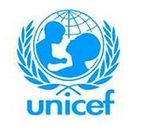UNICEF: Difference between revisions
| Line 42: | Line 42: | ||
==Application for .unicef gTLD== | ==Application for .unicef gTLD== | ||
In 2010, UNICEF announced its interest to apply for the [[.unicef]] [[gTLD]] and issued a Request For Information (RFI) from interested parties that are willing to participate in the selection process to become its partner in managing the administrative and technical operations of the .unicef domain name space in behalf of the organization under a two years contract. The organization believe that operating its [[Brand gTLD|brand gTLD]] will be beneficial to reflect its work as an organization.<ref>[http://www.unicef.org/supply/index_54167.html RFI - Themed Top Level Domain- Provision and Management of UNICEF - Response deadline 30 July 2010]</ref> <ref> | |||
[http://domainincite.com/unicef-looking-for-a-brand-tld-partner/ UNICEF looking for a .brand TLD partner]</ref> | |||
==References== | ==References== | ||
Revision as of 04:31, 30 May 2012
 | |
| Type: | Organization |
| Industry: | Public Services/Policy Dev't. |
| Founded: | 1946 |
| Founder(s): | United Nations |
| Headquarters: | UNHQ New York |
| Country: | USA |
| Website: | www.unicef.org |
| Facebook: | UNICEF |
| Twitter: | |
| Key People | |
| Anthony Lake, UNICEF Executive Director | |
UNICEF (United Nations Children Fund) is an international children's charitable organization and a member of the United Nations Development Group Executive Committee.[1] Its mandate is to lead the advocacy in protecting the rights of children worldwide, to help provide their needs and increase their opportunities to reach their full potential. UNICEF supports and promotes the Convention on the Rights of the Child in more than 190 countries and territories through country programmes and National Committees.[2] The organization carry out its mission in helping children worldwide to survive and thrive by accepting donations and creating partnerships with government and private entities regardless of race, religion, ethnicity or political beliefs as long as they share UNICEF's mandate, values, principles and policies.[3] In 2010, UNICEF reported more than $3.6 billion income and spent around $3.4 billion on numerous programs and $276 million on program support, administration and security. Almost 50 percent of its program expenditures serve the dis-advantaged children located in sub-Saharan Africa and 25% in Asia. The least developed countries with humanitarian needs and suffering from high child mortality rates are the primary beneficiaries of the UNICEF program funds such as Democratic Republic of the Congo, Haiti, Pakistan and Sudan. [4]
Background
The United Nations General Assembly established the United Nations International Children’s Emergency Fund (UNICEF) on December 11, 1946 to provide immediate food and health care services to children and adolescents in countries devastated during World War II without discrimination due to race, creed, nationality, status or political belief. Maurice Pate was appointed as the first Executive Director of the organization. The organizations mandate was broadened by the General Assembly to meet the emergency, long-term and the continuing needs of children particularly those who are located in underdeveloped countries on December 1, 1950. UNICEF became a permanent agency of the United Nations on October 6, 1956 and it official name was changed to United Nations Children's Fund. At present, UNICEF has more than 10,000 staffs and programs of cooperation with 157 governments and territories worldwide. Its is currently guided by the 2006 to 2013 Extended Medium-term Strategic Plan and it is headed by its Executive Director Anthony Lake.[5] [6]
The UNICEF Executive Board
The Executive Board serves as the governing body of UNICEF and its primary responsibilities are to develop programs and allocate funds based on the principles set by the Economic and Social Council. It is composed of 36 elected member states from Africa, Asia, Easter Europe, Latin America and Caribbean and Western Europe with three-years term. The 2012 Member States of the UNICEF Executive Board is available here
Activities
The organization is focused on five major areas:
- Child Survival and Development
- Basic Education and Gender Equality
- HIV/AIDS Prevention and Treatment
- Child Protection from Abuse
- Exploitation and Violence and Policy Advocacy and Partnership.
UNICEF Goodwill Ambassadors and Advocates
Beginning in 1954, UNICEF started accepting the help of celebrities and appointed them as Goodwill Ambassadors and Advocates to promote the organization's mission. Danny Kaye, an American actor and comedian became the first celebrity volunteer and assumed the role of "Ambassador-at-Large" and work for the UNICEF around the world. Other celebrities followed including Audrey Hepburn, Sir Peter Ustinov, Jackie Chan, Ricky Martin, Whoopi Goldberg, Roger Moore, Susan Sarandon, Liam Neeson and many others. [7]
Application for .unicef gTLD
In 2010, UNICEF announced its interest to apply for the .unicef gTLD and issued a Request For Information (RFI) from interested parties that are willing to participate in the selection process to become its partner in managing the administrative and technical operations of the .unicef domain name space in behalf of the organization under a two years contract. The organization believe that operating its brand gTLD will be beneficial to reflect its work as an organization.[8] [9]
References
- ↑ United Nations Development Group
- ↑ About UNICEF-Who We Are
- ↑ UNICEF Partnerships
- ↑ UNICEF Annual Report 2010
- ↑ UNICEF History
- ↑ The UNICEF Executive Board: An Informal Guide 2011
- ↑ UNICEF Goodwill Ambassadors and Advocates
- ↑ RFI - Themed Top Level Domain- Provision and Management of UNICEF - Response deadline 30 July 2010
- ↑ UNICEF looking for a .brand TLD partner

